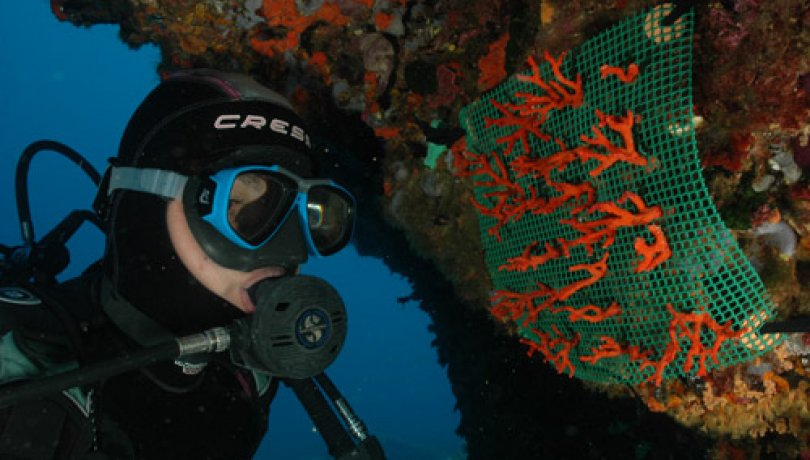Human activities disturb the ecosystem balance. Oceans and coasts are not an exception and the degradation of marine habitats threat many species. Restoration of ecosystems is one of the tools, sometimes the only one, to maintain their biodiversity and balance.

Human activities disturb the ecosystem balance. Oceans and coasts are not an exception and the degradation of marine habitats threat many species. Restoration of ecosystems is one of the tools, sometimes the only one, to maintain their biodiversity and balance.
This is the goal of the European project MERCES (Marine Ecosystem Restoration in Changing European Seas). Aimed at developing methods and protocols to restore marine habitats, this project is led by the Marche Polytechnic University (Italy) and up to 28 partners from 16 countries are involved. It is funded with 6 Million Euros. In Spain, four institutions are involved: the Institut de Ciències del Mar and the Centre d’Estudis Avançats de Blanes, both from the CSIC, and the universities of Barcelona and Girona.
Joaquim Garrabou, a scientist at the Institut de Ciències del Mar in Barcelona, coordinates one of the actions of the project, focused on rockery coast restoration in which, as he explains, “we work to restore Macroalgae forests, coral and gorgonian forest, and continental shelf bottoms, the latest very harmed by trawl fishing”.
MERCES is the first European project in the Horizon 2020 Program focused on developing tools and solutions to recover degraded marine ecosystems. The habitats to be restored are considered hot spots of biodiversity, such as seagrass beds, shallow hard bottoms, and deep ecosystems from the Atlantic North, and the Frisia, Baltic and Mediterranean seas.
The efficacy of the restoring actions will be assessed in the laboratory and in the field, applying methodologies which include eco-physiology, connectivity of populations through genetics, and modelling population dynamics. Robots will be used for monitoring the restoration actions in deep areas.
Work in progress
Several experiments of restoration are in progress. One of them is developed in the Medes Islands where, in 2011, scientists from the ICM-CSIC and the Faculty of Biology of the University of Barcelona -the team led by Cristina Linares- transplanted red coral that had been confiscated by police, from an illegal extraction. Now, scientists are assessing how the corals have adapted. Results are positive at the moment, with a high survival rate.
There are other experiments in progress in Cap de Creus, Menorca and Corsica. The selected places for the experiments are marine protected areas, but the final goal is to obtain protocols about how to do restoration in non-protected zones which are being harmed by fishing practices, pollution and climatic change.
This work can be compared to the restoration of terrestrial forests, as the selected species re-introduced for the restoration are structural and essential for the survival of other species, as it happens with terrestrial ecosystems. Specifically, in the frame of the project they are working with different species of macroinvertebrates such as sponges, corals, shells and macrophytes like Posidonia oceanica (Neptune grass) and Cystoseira spp. macroalgae.
Also, the project will have many outreach activities, in order to generate social awareness and to influence over the management policies and legislation.